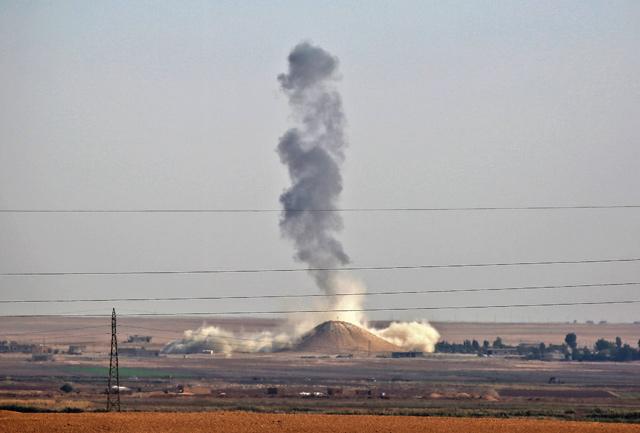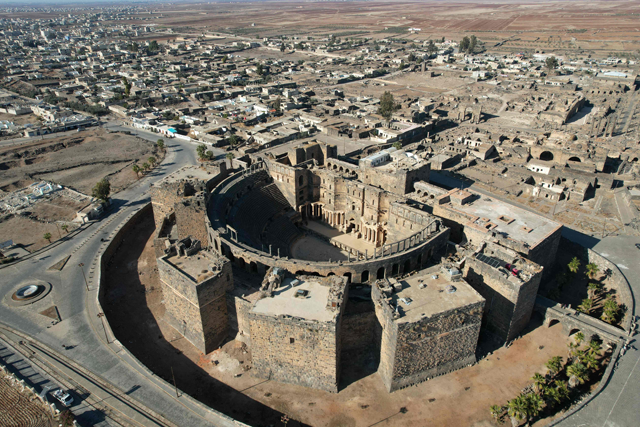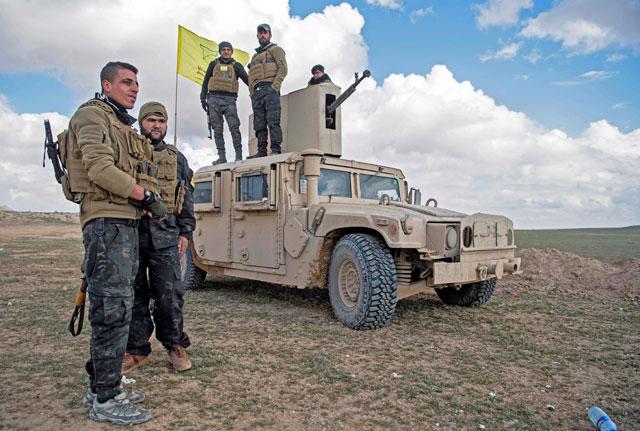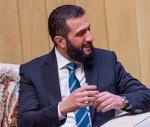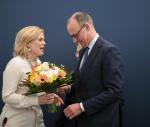You are here
Syria's Kurds: Ten years on, what of autonomy?
By AFP - Mar 09,2021 - Last updated at Mar 09,2021
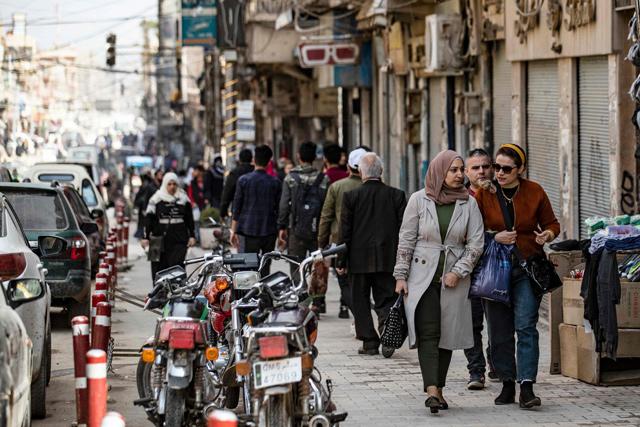
People a shop in a commercial district in Syria's northeastern city of Qamishli on Tuesday (AFP photo)
BEIRUT — Syria's decade-long war has seen the country's Kurdish minority make strides towards autonomy while becoming a key ally of the West against militants.
But with the conflict winding down and the so-called the Daesh group ousted from its last scrap of land two years ago, what's next?
How did they do it?
Syria's Kurds had been marginalised for decades when war broke out.
"Before 2011, there was nothing to give us hope," said Aldar Xelil, one of the architects of Kurdish semi-autonomy.
"The Kurds were completely oppressed, denied their language and culture. We didn't even have IDs."
After the Damascus government withdrew its troops from the Kurdish northeast in 2012 to be redeployed to conflict zones, the Kurds started building their own institutions in Kurdish-majority northern areas along the Turkish border.
They collected taxes and ran schools teaching the Kurdish language.
Finally, "Kurdish citizens felt like they existed," Xelil said.
After Daesh overran large parts of Syria and neighbouring Iraq in 2014, the Kurds spearheaded an alliance of Kurdish and Arab fighters battling them.
Backed by a US-led coalition, the Kurdish-led Syrian Democratic Forces (SDF) also took over Arab-majority areas, moving into the east where they now control the largest oil fields in the country.
The Damascus regime has managed to claw back more than 60 per cent of the country with key Russian backing since 2015, but the SDF-held northeast and east remain largely beyond its reach.
Turkish opposition
Ankara opposes the growing presence along its southern border of Kurdish forces it regards as a "terrorist" extension of the Kurdistan Workers' Party (PKK), which is outlawed in Turkey.
In 2018, Turkish forces and their Syrian proxies seized the north-western region of Afrin from the Kurds.
The presence of US troops in Kurdish areas further east largely shielded the Kurds.
But after then US president Donald Trump announced he would withdrew troops from Syria, Ankara again attacked in 2019, seizing a 120-kilometre stretch of territory on the Syrian side of the border from Kurdish fighters.
Does the US have their back?
Analyst Dareen Khalifa says that as SDF control over northeast Syria is a direct result of US support, "the local and geopolitical implications this has created have become a US problem".
With US President Joe Biden now in the White House, the fate of SDF-held areas will depend on the outcome of a debate in Washington over whether or not to keep troops in Syria, Khalifa said.
The Kurds will be "highly vulnerable to external attacks once the US departs", she said.
"The Biden administration is less likely to leave precipitously," but they will probably not commit to staying forever either, she said.
The Kurds have welcomed the appointment of a former US envoy to the coalition, Brett McGurk, as Middle East and Africa coordinator in the White House.He had resigned in December 2018 in protest at Trump ordering US troops to leave Syria.
Kurdish politician Xelil said he hoped for a different approach under Biden.
But "we can't rely on them", he said.
Could Damascus help?
The Damascus government, which is under US sanctions, has accused the Kurds of seeking secession, but they have repeatedly denied this.
After the Turkish incursion in 2019, the Kurds scrambled to seek protection from Damascus, which deployed some troops to northeast Syria as a buffer against the Turks, though the SDF broadly retain control.
Analyst Mutlu Civiroglu said the Kurds have always preferred the Syrian government over Ankara.
"Turkey is an occupying power and they [the Kurds] have always considered themselves as a part of Syria," he said.
But for now talks between the Kurds and Damascus on the future of the region have stalled.
The government is "still determined things should go back to the way they were before 2011", whereas "things have changed", Xelil said.
But contact continues between the two sides.
Khalifa said one solution might be "a degree of decentralised rule in northeast Syria".
And what of Daesh?
The SDF has ousted Daesh from its last patch of territory, despite sporadic attacks.
But the Kurds now hold tens of thousands of alleged Daesh fighters and family members — many from Western and Asian countries — in jails and overcrowded camps, where breakout attempts and killings have become increasingly common.
Most countries have largely refused to repatriate their citizens, and Kurdish calls for an international tribunal to judge Daesh suspects have fallen on deaf ears.
"They won't help us set up a court, but they won't take them back either," Xelil said. "We don't know what the solution is."
Related Articles
BEIRUT — Kurds, among the biggest winners of Syria's war, stand to lose most from a US decision to withdraw forces who have helped them batt
GENEVA - The UN migration agency on Thursday expanded an aid appeal for Syria to over $73 million, as the country transitions after years of
NEAR BAGHOUZ, Syria — Syrian fighters backed by artillery fire from a US-led coalition battled a fierce terrorist counteroffensive as they p


